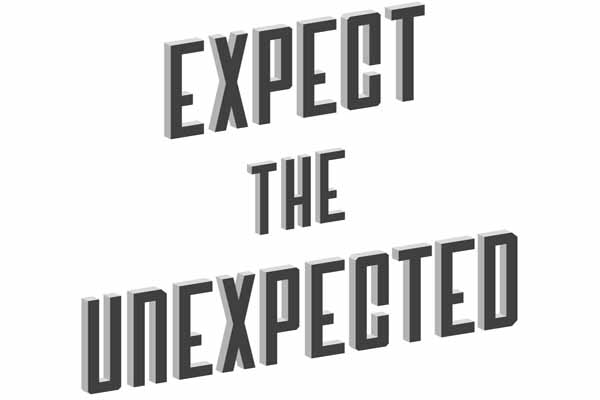Here's an important Vero Beach home buying tip. A home search can often be fraught with unexpected costs – not only for first-time buyers, but even for the most seasoned home purchasers. If you’re in the process of looking for your first home, there are a few things you should know to keep hidden or surprise costs to a bare minimum. Unexpected costs can catch you completely off guard. More importantly, they can very quickly leave you under water on your new purchase right from the start. Let’s take a look at a few of these costs and how to best avoid them.
Vero Beach Home Buying Tip: Keeping Costs Down
Of course, there’s really only one sure-fire way to be completely prepared for all the hidden costs of buying your first home – expect the unexpected and have enough cash to pay for the surprises. However, that’s easier said than done.

As you're probably aware, first-time home buyers should know the money they will spend on the purchase of their home won’t be limited to just the down payment. On top of the down payment are costs like homeowners insurance and loan closing costs. While they are a little easier to plan for since they’re an integral part of the home buying and mortgage lending process, others are less obvious.
For example, let’s say the previous owners of your home moved out and took the refrigerator with them. You have to have a refrigerator, so you’ll likely buy one to replace it. Unless you negotiate specifically what items are included in the sales transaction ahead of time, you could be caught unaware. In addition, you could be on the hook for certain immediate home improvements that must be made. And while a few hundred dollars here and there may not seem like a lot individually, collectively the cost can add up fast – especially considering you plunked down most of the cash you had on the down payment and closing costs.
To make the situation even scarier, the relatively minor costs mentioned above could be the least of your financial concerns. When you buy your first home – or any home – you should hire a home inspector to give your home a thorough walk-through. A trained home inspector will look for foundation problems, rotten wood, and electrical or plumbing issues. The good news is if a home inspection uncovers a potential problem, you’ll at least be aware of it and can get a cost estimate to repair it – if you decide to continue your plans to purchase the home. If the repair costs are a deal-breaker and you're unable to negotiate with the seller to pay for them, you can usually back out of the contract.
Often, first-time home buyers elect to feather their new nest with all the creature comforts they want in their first home. If you enjoy cable television, for example, make sure your home is wired for cable. In addition, seemingly little things like new drapes or window treatments can be costly, so take them into consideration when it comes time to think about how to decorate favorite rooms in your new home. Lastly, if it’s your first home you’re probably migrating from being a tenant to being a homeowner, which means you’ll probably be faced with higher utility bills. Your new, modest 1,800 square foot home will likely cost more to heat and cool than the two-bedroom second floor apartment you moved from. Plus, you’ll probably be paying for other utilities your old landlord may have paid before, such as water, garbage pickup or homeowner’s association dues.
The absolute best way to be ready for unexpected expenses is this Vero Beach home buying tip: Plan ahead. The first step is to come up with a budget before you begin your home search. If you’re looking for homes within your budget that may require improvements, find out what those improvements will cost and determine if you can afford them. Many first-time home buyers have been disappointed – or downright shocked – when they discover a home improvement project they thought could be performed for a few hundred dollars may actually end up costing several thousand. Another Vero Beach home buying tip: There’s no limit as to how prepared you can be. For example, say you find a home you like that’s priced considerably lower than others in the neighborhood because of its age. While you may save a good bit of money on the listing price, you may end up paying more in the long run due to nagging, needed improvements that may occur, or the realization your homeowner’s insurance is higher because of the home’s age.
That’s why it’s best to be prepared. Do some research on homeowner’s insurance and comparable sales in the neighborhoods you’re interested in. Decide how much you can comfortably afford for a down payment, then assess how much cash you may have left for any improvements or incidental costs. Then – and only then – will you know whether you can afford a slightly higher-priced home that may require some additional work, new carpet or new kitchen appliances.
So, before you enter the market, remember this Vero Beach home buying tip: Know what to expect. That alone will give you a tremendous advantage when it comes time to weigh the pros and cons of buying a particular house, and what the costs may be to either repair it, improve it, or make it comfortable and acceptable for your own individual tastes. Planning ahead will not only protect you from unexpected monetary surprises, it will make your home buying experience more enjoyable and more profitable in the long run. Remember, buying a house is an important financial move, but it’s not worth depleting all your savings to the point where you can’t enjoy your new home.
Read more about home buying in the section of articles on Vero Beach Home Buying Tips just below Vero Beach Real Estate Categories in the column to your right. Remember, we also post tips daily on Facebook and Twitter. Check us out there, too.

